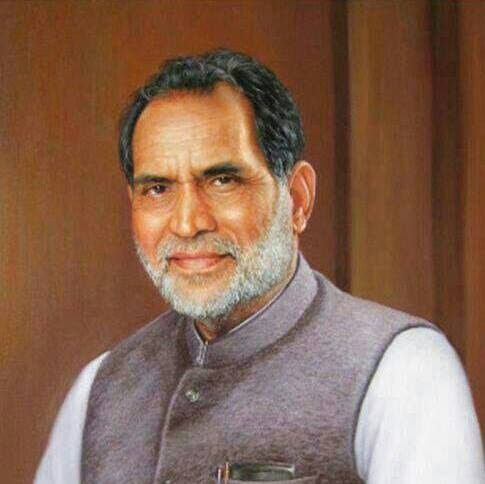Chandra Shekhar: A Bold and Decisive Leader Who Shaped India’s Political Landscape
Chandra Shekhar, often referred to as the “man of principles,” was one of India’s most charismatic and impactful politicians. Known for his uncompromising nature and firm stance on issues, he served as the 8th Prime Minister of India from 1990 to 1991. Though his tenure was brief, his legacy has left a lasting impact on the Indian political scene. His life, filled with struggles and triumphs, continues to inspire future generations of leaders.
Early Life and Education
Chandra Shekhar was born on July 1, 1927, in Ibrahimpur, a small village in Uttar Pradesh, to a family of farmers. His humble beginnings shaped his values, which remained deeply connected to the struggles of the common man throughout his political career. Growing up, he developed a keen interest in the political and social issues facing India and was influenced by the freedom movement.
He completed his schooling from various local schools and later attended the University of Allahabad, where he graduated with a degree in Arts. It was during his college years that he became actively involved in politics, inspired by the ideas of socialism and social justice.
Entry into Politics
Chandra Shekhar’s political journey began when he joined the Congress party, where he quickly rose through the ranks. He was drawn to the ideology of Jawaharlal Nehru and his vision of a modern, socialist India. In 1958, Shekhar was elected as a Member of Parliament (MP) for the first time, and his political career continued to gain momentum over the years.
However, Chandra Shekhar was not a blind follower of the Congress party’s policies. Over time, he grew disillusioned with the party’s internal dynamics, particularly under Indira Gandhi’s leadership. His vision of a more accountable and democratic India led him to break away from Congress in 1975. He then founded the Janata Party, becoming a key figure in the opposition.
Prime Ministership and Key Contributions
In 1990, Chandra Shekhar became the Prime Minister of India. Although his tenure lasted only eight months, his time in office was marked by significant challenges and decisive actions. Chandra Shekhar’s leadership was characterized by his unyielding stance on maintaining the integrity of India’s democratic system.
- A Bold Stand Against Coalition Politics: Chandra Shekhar assumed the role of Prime Minister at a time when coalition politics was becoming the norm in India. His government was formed with the support of numerous smaller parties, which posed significant challenges in terms of stability. Despite facing a fragmented political environment, Chandra Shekhar’s leadership was focused on maintaining a cohesive vision for the country. His government fell due to the lack of support from allies and his refusal to compromise on his principles, demonstrating his courage and determination.
- Economic Reforms: During his time in office, India was facing severe economic challenges, including inflation, a widening fiscal deficit, and foreign exchange shortages. Although his government did not have the mandate to bring about major long-term economic reforms, Chandra Shekhar took steps to address the immediate crisis. He worked towards restoring economic stability through measures that included reducing government expenditure and addressing inflation.
- Political Ethics and Social Justice: Throughout his political career, Chandra Shekhar was known for his strong ethical stance. He was never afraid to speak out against corruption and nepotism in politics. He advocated for greater transparency in government and pushed for social justice policies that benefitted the marginalized sections of society. His politics revolved around the idea of empowering the common man and making politics more accountable to the people.
Challenges and Resignation
Despite his determination, Chandra Shekhar’s government struggled to maintain stability. The political environment of the time was tumultuous, and his government lacked a clear majority in the Lok Sabha, leading to frequent defections and the loss of support from coalition partners.
In November 1990, Chandra Shekhar was forced to face a vote of confidence in the Lok Sabha. The vote resulted in his defeat, and he resigned as Prime Minister. His resignation was a reflection of his commitment to maintaining democratic principles rather than compromising with political expediency.
Legacy and Impact on Indian Politics
Chandra Shekhar may have served as Prime Minister for a short time, but his influence on Indian politics is undeniable. His unwavering commitment to ethical governance, his stance on social justice, and his bold decisions during a challenging period in Indian history continue to resonate with political leaders and citizens alike.
- Commitment to Principles: One of the defining aspects of Chandra Shekhar’s political career was his unwavering commitment to his principles. Unlike many politicians of his time, he refused to compromise on issues of ethics and transparency. His determination to uphold these values, even when it cost him political power, made him a respected figure in Indian politics.
- Role in Coalition Politics: Chandra Shekhar’s tenure as Prime Minister was an early example of coalition politics in India. Though his government was short-lived, it highlighted the challenges and complexities of leading a coalition government, an experience that would become more prevalent in Indian politics in the years that followed.
- Inspiration for Future Leaders: Chandra Shekhar’s boldness and leadership style have inspired countless politicians. His belief in putting the country’s interest above personal or party interests set a standard for ethical leadership that continues to be relevant today.
FAQs About Chandra Shekhar
Q1: What were the major challenges faced by Chandra Shekhar during his tenure as Prime Minister?
Chandra Shekhar faced a fragmented political environment, lack of majority support in the Lok Sabha, and economic instability. His government struggled to maintain stability and ultimately fell due to political defections.
Q2: What was Chandra Shekhar’s stance on corruption?
Chandra Shekhar was known for his strong anti-corruption stance. He believed in transparency and ethics in governance, and he was an advocate for social justice and accountability.
Q3: How did Chandra Shekhar contribute to India’s economic reforms?
Though his government did not bring about major long-term economic reforms, he took necessary steps to address immediate economic challenges, including reducing government expenditure and stabilizing the economy.
Chandra Shekhar’s legacy as a principled leader, a fierce advocate for social justice, and a man who refused to compromise on his values, continues to inspire new generations of political leaders. His short tenure as Prime Minister may have been brief, but the lessons drawn from his leadership have played a key role in shaping the course of Indian democracy.










